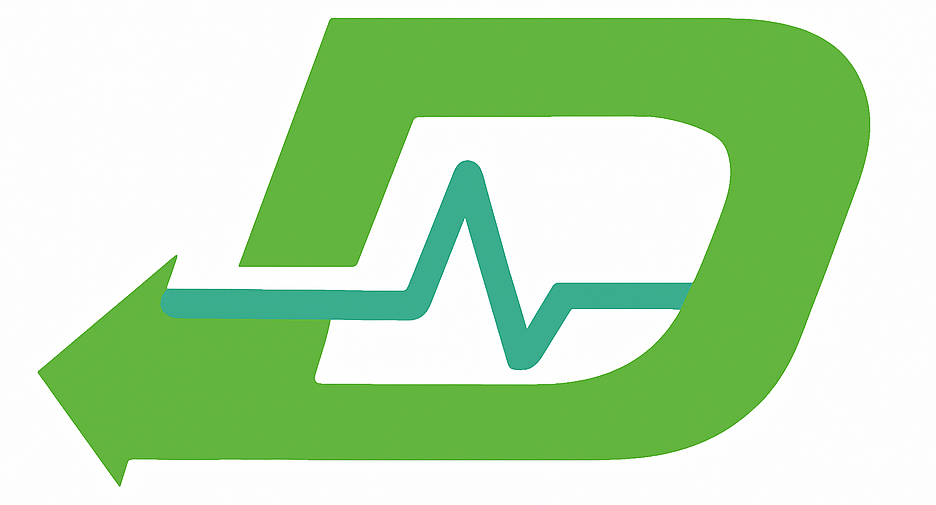It’s been almost forty years since Bob Dylan and Emmylou Harris sang about the guy who left his gypsy girl for a journey “to the valley below”. His final cup of coffee became a classic.
One more cup of coffee for the road
One more cup of coffee ‘fore I go
To the valley below– Bob Dylan 1976
Coffee, second to water, is the most widely consumed beverage in the US (1). However, the US doesn’t reach the world’s top ten when it comes to coffee consumption per capita. Consumption is higher in Scandinavia and many other European countries (2).
About two-thirds of Americans drink coffee daily. Given its widespread popularity, small benefits or harms associated with coffee may have important implications for public health.
Caffeine is the best-known compound in coffee. However, coffee contains more than 1.000 substances, among them, are diterpene alcohols and chlorogenic acid.
Caffeine is known for its stimulating effects on the central nervous system; diterpene alcohols have been associated with elevation of cholesterol (3) and chlorogenic acid and flavonoids in coffee have antioxidant and anti-inflammatory effects.
Caffeine is the most widely used stimulant in the world and one of few that is socially accepted. In most cases, exposure to caffeine continues for many years, often throughout life. It is estimated that 80-90 percent of adults in the world consume coffee daily.
Habitual coffee consumption often leads to mild physical dependence. Withdrawal symptoms such as irritability, headache, fatigue, anxiety and depressed mood are common if consumption is stopped abruptly.
Most of the data on the health effects of coffee are derived from observational studies. Unfortunately, such studies can’t prove a causative relationship between habitual coffee consumption and different health issues. However, currently available evidence suggests that habitual coffee consumption may have important effects on health and wellbeing.
How Much Coffee is Safe?
The average US adult drinks about two cups of coffee per day which is equivalent to approximately 280 mg of caffeine. However, this depends on the caffeine content of the coffee that varies greatly.
Consuming high amounts of caffeine may cause palpitations, anxiety, tremors and sweating. Very high doses may even be lethal.
Men consume more coffee than women; smokers drink more than nonsmokers and coffee consumption is lower in the black than in the white population in the US (4).
For most adults, consumption of up to 400 mg of caffeine a day appears safe (5).
It is important to keep in mind that soft drinks and energy drinks are also a common source of caffeine.
Coffee and Cardiovascular Risk Factors
Habitual coffee consumption may affect risk factors for cardiovascular disease such as blood lipids and blood pressure. In theory, this may influence health, quality of life and risk of developing coronary heart disease or stroke.
Coffee and Cholesterol
Cafestol and kahweol are examples of diterpenes in coffee beans that may raise blood cholesterol and triglycerides (6).
The highest amounts of cafestol are found in unfiltered coffee drinks such as French press coffee or Turkish/Greek coffee. Kahweol is a similar molecule, typically found in Coffea Arabica.

A meta-analysis of 14 randomized controlled trials showed a significant increase in total and LDL cholesterol following regular consumption of boiled coffee compared to filtered coffee (7).
Coffee and Blood Pressure
High blood pressure (hypertension) is a strong risk factor for coronary heart disease and stroke.
Coffee consumption may be associated with acute, short-term increase in blood pressure that may last for up to three hours. However, long-term blood pressure does not seem to be significantly affected by habitual coffee consumption (8).
A 2012 meta-analysis did not show any significant effect of coffee consumption on blood pressure or the risk of hypertension (9). However, the authors of the paper conclude that the quality of currently available evidence is low, and therefore “no recommendation can be made for or against coffee consumption as it relates to blood pressure and hypertension“.
In other words, scientific evidence has not shown an association between coffee consumption and the risk of developing hypertension. However, such a relationship can’t be ruled out.
Coffee, Insulin Resistance, and Diabetes
Habitual coffee consumption is associated with reduced risk of diabetes (10).
Drinking coffee, both caffeinated and decaffeinated was associated with lower risk of diabetes according to a recent analysis of a huge epidemiological database from the Nurse’s Health Study (11). A four to eight percent risk reduction in incident type-2 diabetes may be expected for every one cup increment in coffee consumption.
Several mechanisms have been proposed to explain the protective effects of coffee on the risk of developing diabetes. Coffee is rich in chlorogenic acid, an antioxidant that may improve glucose metabolism and insulin sensitivity (12).
Another study found that consumption of 5 cups of coffee per day increased adiponectin levels and decreased insulin resistance (13).
Coffee and Cardiovascular Disease
Caffeine has diverse effects on the cardiovascular system. It has been associated with increased heart rate, palpitations and elevated blood pressure, in particular among non-habitual coffee drinkers.
Coffee and Coronary Heart Disease
Studies performed in the 1970s suggested that habitual coffee consumption was associated increased risk of heart attack (myocardial infarction) (14,15). Today it is believed that confounding factors such as smoking, alcohol use, and physical activity may have flawed those early studies.
Since then, many observational studies have addressed the association between habitual coffee consumption and coronary heart disease. Most of these studies have shown neutral effects.
A 2009 meta-analysis of prospective cohort studies showed that moderate coffee consumption was associated with lower risk of coronary heart disease (16).
A recent Korean study showed that middle-aged individuals who drank 4-5 cups of coffee a day had less calcification in their coronary arteries compared to those who drank less coffee (17). Coronary artery calcium score is a known risk factor for developing clinical coronary heart disease.
Coffee and Arrhythmia (Irregular Heartbeat)
There is widespread belief that habitual coffee consumption is associated with heart palpitations and irregular heartbeat. However, data linking coffee consumption to arrhythmia is inconsistent.

Recent studies suggest that coffee does not cause arrhythmia. In fact, one large study suggests that people who drank four cups of coffee per day were less likely to be hospitalized for arrhythmias (19). Therefore it is unlikely that moderate caffeine intake increases the risk of clinically significant arrhythmia.
Coffee and Stroke
A recent meta-analysis of prospective studies that have examined coffee consumption and risk of cardiovascular events in a general population found that moderate intake is associated with a decreased risk of stroke (20).
In the Swedish Mammography Cohort, coffee consumption was associated with lower risk of stroke among 34,670 women without a history of cardiovascular disease or cancer (21). The authors of the paper concluded that low or no coffee consumption is associated with an increased risk of stroke in women.
Data from the large Nurses’ Health Study showed an association between coffee consumption and decreased risk of stroke in a large cohort of women (22). The authors of the paper concluded that coffee consumption may modestly reduce the risk of stroke.
Coffee and Cancer
Caffeine has not been shown to cause any type of cancer (23).
The relationship between caffeine consumption and breast cancer is uncertain. Some studies have found coffee consumption to be associated with lower risk of breast cancer while others have not (24).
Some studies suggest that coffee consumption is associated with increased risk of lung cancer (25). However, this association became only marginally significant when the analysis was stratified by smoking status. Smokers, in general drink more coffee than non-smokers. Therefore, these results have to be interpreted with caution.
Observational studies have suggested that coffee consumption is associated with a decreased risk of some cancers of the gastrointestinal tract, particularly cancer of the mouth and throat (oropharyngeal cancer)(26) and cancer of the liver.
The relationship between coffee consumption and bowel cancer (colorectal cancer) is unclear (27). Although some studies suggested an association between coffee consumption and decreased risk of colorectal cancer, other studies have not supported this finding.
Habitual coffee consumption is associated with reduced risk of prostate cancer according to a number os studies (28). It has been suggested that this effect is related to other components of coffee than caffeine as a similar level of protection was found for those drinking caffeinated and decaffeinated coffee (29).
Other Health Benefits of Coffee
Studies have shown habitual coffee consumption to be associated with decreased rate of depression in women. This effect seems to be largely related to the caffeine content because similar association was not found for decaffeinated coffee (30)
Coffee is associated with reduced risks of Alzheimer’s disease (31) and Parkinson’s disease (32).
According to some studies coffee may increase the risk of bone loss. This may partly be offset by daily milk consumption (33).
Numerous observational studies have shown a relationship between coffee consumption and decreased all-cause mortality, suggesting that drinking coffee may prolong life (34,35,36).
Two prospective cohorts studies published 2015 showed that habitual intake of coffee was with lower risk of total mortality and less mortality from heart disease, cerebrovascular disease, respiratory disease, diabetes and influenza (37,38).
Health Benefits of Coffee – The Take Home Message
The association between habitual coffee consumption and health is mainly based on observational studies. Although such studies can’t prove a causative relationship, currently available evidence does not suggest that moderate coffee consumption is associated with health risks or increased risk of cardiovascular disease or cancer.
There is an association between habitual coffee consumption and decreased risk of diabetes, coronary heart disease, stroke and some cancers. However, the possibility that coffee consumption is a surrogate marker for other lifestyle factors can’t be ruled out.
Current evidence suggests that habitual coffee consumption can be a part of a healthy lifestyle, and there is no reason to advise individuals with established cardiovascular disease to abstain from moderate coffee consumption.
Discover more from Doc's Opinion
Subscribe to get the latest posts sent to your email.


Thank you for this excellent summery on the benefits coffee.
I personally have “preached” about the health benefits of coffee (and tea) for quite some time now to my clients. But I always add to my preaching that you should only drink coffee if you feel good from drinking coffee as it, as with most things, does not effect everybody the same. Some people feel really good after a cup of coffee, while others feel unwell.
I know of 3 studies showing there is a genetic difference in how people react to coffee regarding cancer, hypertension and heart health which I think has a relevance to the above article.
Here are the studies:
https://www.ncbi.nlm.nih.gov/pubmed/16522833
https://www.ncbi.nlm.nih.gov/pubmed/19451835
https://www.ncbi.nlm.nih.gov/pubmed/17507615
Thank you
While the study focuses on coffee, how does decaf fit into the picture? Or, my personal favorite, espresso?
Yes, but we have to remember that cofee may induce heart arrhytmia due to stomach irritation. Then, the stomach induces more acids production, which irritates esophagus, and by this it also iritates vagus nerve inducing bradycardia, especially at night, what may cause AFib and arrhythmias as, bigeminys and trigeminys.
In other words, cofee induces hyperacidity, hyperacidity induces hunger, hunger induces bradycardias, bradycardias induces heart irregularities.
I often experience above arrhythmias (besides AFibs), especially due to hunger, which is greater after coffee.
Quite a good review of the studies concerning coffee, earlier and more contemporary.
Loved the picture at the top too! I think I want a cup now!
It’s interesting that coffee can help enhance performance. One of my friends loves coffee so much that I think she should have it delivered. Thanks for pointing out the benefits of coffee.